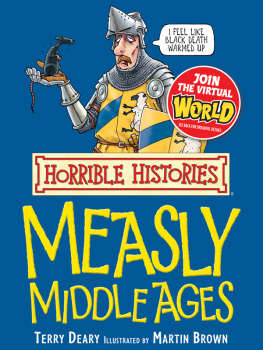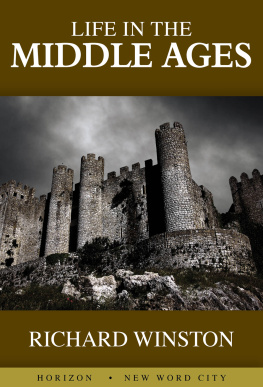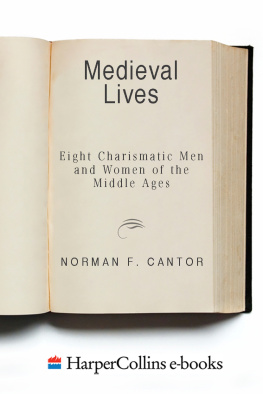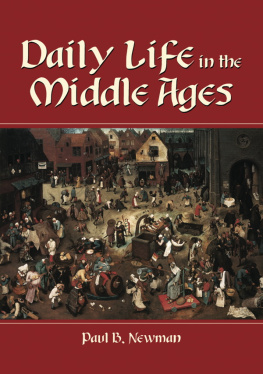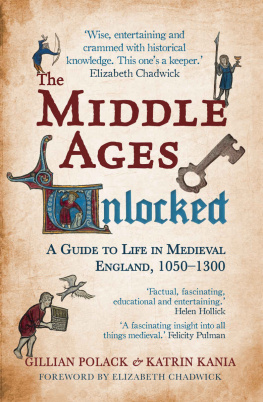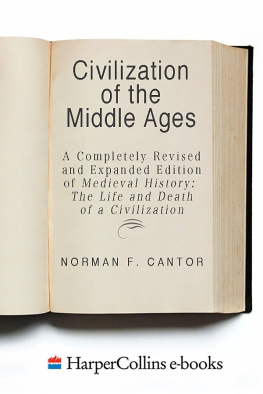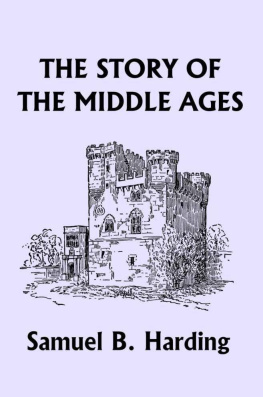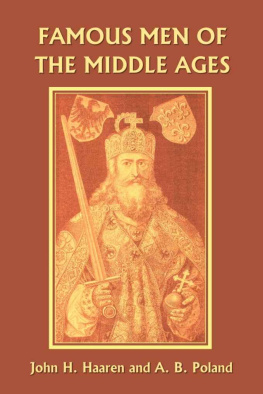Fossier - The Axe and the Oath. Ordinary Life in the Middle Ages
Here you can read online Fossier - The Axe and the Oath. Ordinary Life in the Middle Ages full text of the book (entire story) in english for free. Download pdf and epub, get meaning, cover and reviews about this ebook. year: 2007;2010, publisher: Princeton University Press;Princeton UP,, genre: Science. Description of the work, (preface) as well as reviews are available. Best literature library LitArk.com created for fans of good reading and offers a wide selection of genres:
Romance novel
Science fiction
Adventure
Detective
Science
History
Home and family
Prose
Art
Politics
Computer
Non-fiction
Religion
Business
Children
Humor
Choose a favorite category and find really read worthwhile books. Enjoy immersion in the world of imagination, feel the emotions of the characters or learn something new for yourself, make an fascinating discovery.

The Axe and the Oath. Ordinary Life in the Middle Ages: summary, description and annotation
We offer to read an annotation, description, summary or preface (depends on what the author of the book "The Axe and the Oath. Ordinary Life in the Middle Ages" wrote himself). If you haven't found the necessary information about the book — write in the comments, we will try to find it.
Fossier: author's other books
Who wrote The Axe and the Oath. Ordinary Life in the Middle Ages? Find out the surname, the name of the author of the book and a list of all author's works by series.
The Axe and the Oath. Ordinary Life in the Middle Ages — read online for free the complete book (whole text) full work
Below is the text of the book, divided by pages. System saving the place of the last page read, allows you to conveniently read the book "The Axe and the Oath. Ordinary Life in the Middle Ages" online for free, without having to search again every time where you left off. Put a bookmark, and you can go to the page where you finished reading at any time.
Font size:
Interval:
Bookmark:
THE AXE AND THE OATH
THE AXE AND THE OATH
ORDINARY LIFE IN THE MIDDLE AGES
R OBERT F OSSIER
Translated by Lydia G. Cochrane

PRINCETON UNIVERSITY PRESS
PRINCETON AND OXFORD
Original edition published under the title Ces gens du Moyen ge by Robert Fossier.
World copyright LIBRAIRIE ARTHEME FAYARD, 2007.
English translation copyright 2010 by Princeton University Press
Published by Princeton University Press, 41 William Street,
Princeton, New Jersey 08540
In the United Kingdom: Princeton University Press, 6 Oxford Street,
Woodstock, Oxfordshire OX20 1TW
All Rights Reserved
Library of Congress Cataloging-in-Publication Data
Fossier, Robert.
[Ces gens du Moyen ge. English]
The axe and the oath: ordinary life in the Middle Ages / Robert Fossier;
translated by Lydia G. Cochrane.
p. cm.
ISBN 978-0-691-14312-5 (cloth: alk. paper)
1. Civilization, Medieval. 2. Middle Ages. 3. EuropeSocial life and customs.
4. EuropeSocial conditionsTo 1492. I. Title.
CB351.F68513 2010
940.1dc22 2010004039
British Library Cataloging-in-Publication Data is available
Ouvrage publi avec le concours du Ministre franais charg de la cultureCentre national du livre. This work is published with support from the French Ministry of Culture/Centre national du livre.
This book has been composed in Minion with Old Claude display
Printed on acid-free paper.
press.princeton.edu
Printed in the United States of America
1 3 5 7 9 10 8 6 4 2
We of the Middle Ages, we know all that, states one of the characters in a play by an author who wrote a century ago. That ludicrous statement was intended to raise a smile from a literate audience, but how about the others? How about those for whom the Middle Ages is a vast plain with uncertain contours in which collective memory sets into action kings, monks, knights, and merchants placed somewhere between a cathedral and a castle with a keep, with all of them, men and women, bathed in a medieval atmosphere of violence, piety, and occasional feast days? The politicians, journalists, and media people who perform before our eyes dip into that mix, usually in total ignorance, for their peremptory and hasty judgments. This is all very moyengeux, a term and an attitude that we can leave to the music hall repertory of the Chtelet and say medieval or Middle Ages, which cover the same area with no hint of condescension.
Several decades ago, Lucien Febvre (and Fernand Braudel after him, although less aggressively) laughed at those who claimed to approach and describe those men and women as they changed and multiplied over a thousand years. The two scholars agreed, as Marc Bloch had established once and for all, that the territory of history was the human condition, man or men in society, but they considered it pure fiction to seek an unchanging prototype over such a long time span. Medieval man did not exist. Yet, this was the title that Jacques Le Goff gave, some twenty years ago, to the essay that served as an introduction to a collective work by ten well-known scholars. Le Goff avoided the creation of a general model, however, by offering a series of portraits of social types (in fact, in English translation the book is titled Medieval Callings): the monk, the warrior, the city dweller, the peasant, the intellectual, the artist, the merchant, the saint, the marginal manand women and the family. Those portraits drew their art and their color from the entire complex of actions, shared the imaginary and the systems of representation and categorization that shaped the flow of economic and social life. What emerged was a medieval typologycast within specific categories accessible to modern readersof elements that also contributed to an understanding of the problems that assail us today.
This is not my approach. Besides, why should anyone continue or even return to that fresco by adding further types of men or offering nuances and new details? Such a task, carried out sector by sector, would be interminable, tedious, and unproductive; moreover, it would be far beyond my competence. Instead, it is striking, in this work and in others of more modest ambitions, that although the authors show little surprise at the fact, all of those men, no matter what their origin, clearly ate, slept, walked, defecated, copulated, and even thought in the same ways that we do. We too eat with our fingers, cover our sexual parts (which, incidentally, we make use of in an identical manner); we too protect ourselves from the rain as best we can; we laugh or cry out just as people did in the times of Charlemagne, Saint Louis, or Napoleon. Naturally, I am well aware of the contingencies of daily life or of a given time period, the weight of thought or of fashion, but to look at him in his ordinary life, yesterday as today, man is merely a bipedal mammal who needs oxygen, water, calcium, and proteins to subsist on the portions that emerge at the surface of a ball of iron and nickel with three-fourths of its surface covered with salt water, living on landmasses occupied by an ocean of vegetation peopled by thousands of other species. Man is, in short, only a human beast. It is that bte humaine that interests me, and Lucien Febvre was quite wrong to think that ten or twelve centuries could change him.
The reader may judge these thoughts provocative and react with a bit of anger, but the discomfort that he feels will simply illustrate my point. The readers reaction shows, in fact, that he cannot shake off the basic idea that underlies his thought. Man is an exceptional being because he was willed by the divine Spirit or, if he rejects that convenient postulate, because he is an animal endowed with superior qualities. However, anyone can see that mans life is ceaselessly threatened by the liquid, the vegetable, and the animal, all of which besiege him; that life is an unceasing combat to avoid death; and that perhaps, in the longvery longhistory of our planet, his passage will leave no deeper trace than that of the coelacanths or the dinosaurs that lived hundreds of thousands of years before him. Let us then be more modest, and begin examining ourselves less complacently.
In attempting to shake up certitudes, my hope is to lead the eventual reader to raise questions about them, naturally leaving open the possibility of returning to them if they prove the better choice. I am aware that my proposed course has some weaknesses. What is important is that the being that I will attempt to describe in his body, his soul, his brain, and his environment has to be inserted into a context, which is that of my sources, or at least those that I can master. I cannot claim to describe the fellah of the age of the pharaohs or the Tibetan monk any more than I can evoke the courtier at Versailles or the miner in Germinal. It is only within the Middle Ages that I feel myself somewhat at home, although my profession has of course led me to frequent the Athenian hoplite or the Reichshoffen cuirassier for a short time. As it happens, the period of the Middle Ages has specific traits, as does any other stage in the human adventure: I cannot hide them, thus calming the posthumous anger of Lucien Febvre. What is more, we need to agree about what was or were the Middle Ages, an expression invented for the use of the university by Guizot or perhaps even by Bossuet. Was this a segment of time in which the economy and society had certain distinct traitsfeudalism, as Marx would have it? But, really, did people eat feudally? Was it a time of triumphant militant and generalized Christianity? But can we say that the epidemic known as the
Font size:
Interval:
Bookmark:
Similar books «The Axe and the Oath. Ordinary Life in the Middle Ages»
Look at similar books to The Axe and the Oath. Ordinary Life in the Middle Ages. We have selected literature similar in name and meaning in the hope of providing readers with more options to find new, interesting, not yet read works.
Discussion, reviews of the book The Axe and the Oath. Ordinary Life in the Middle Ages and just readers' own opinions. Leave your comments, write what you think about the work, its meaning or the main characters. Specify what exactly you liked and what you didn't like, and why you think so.

